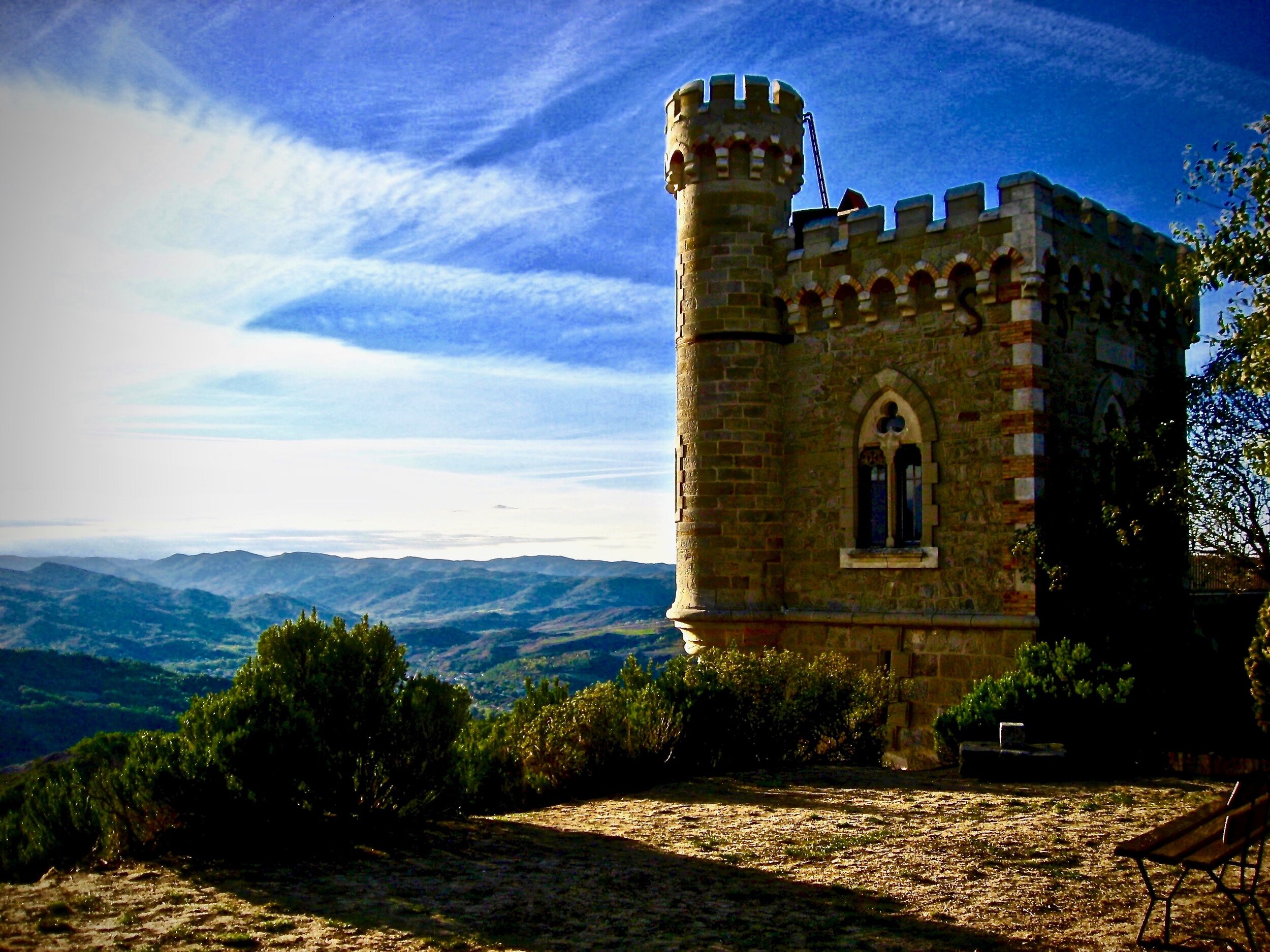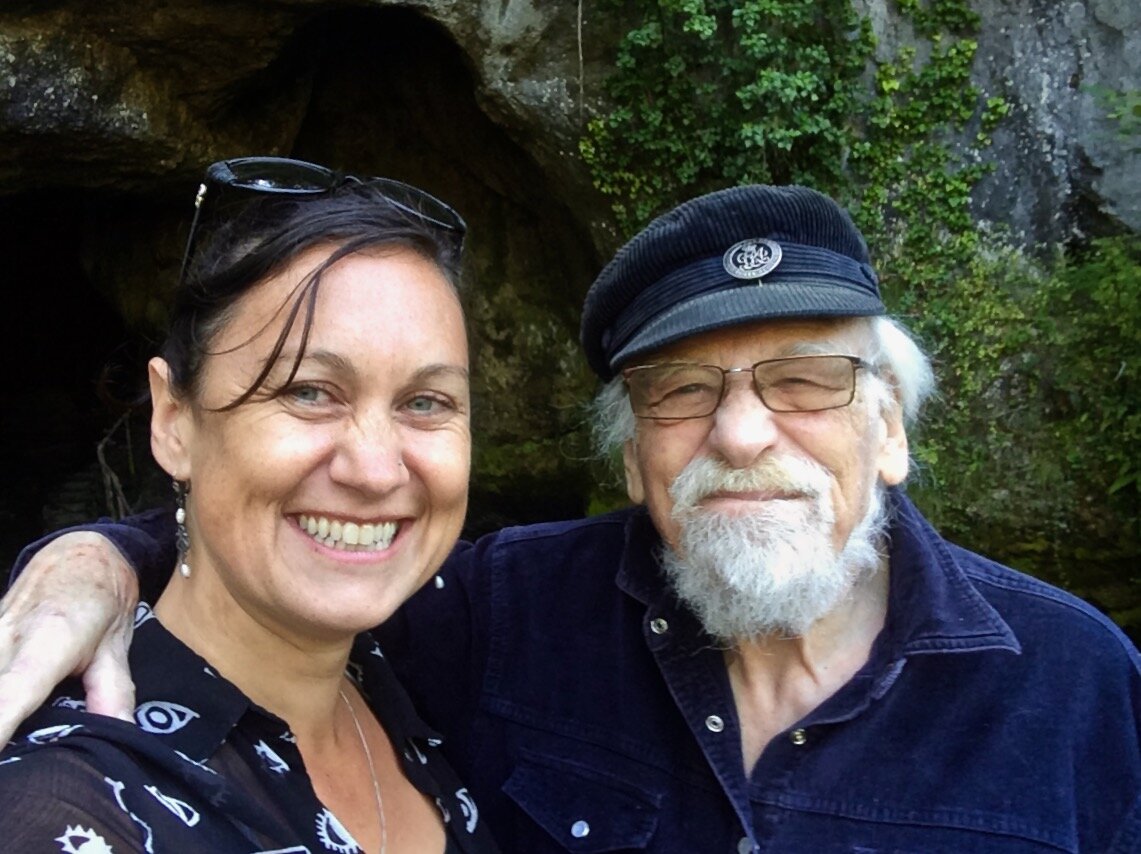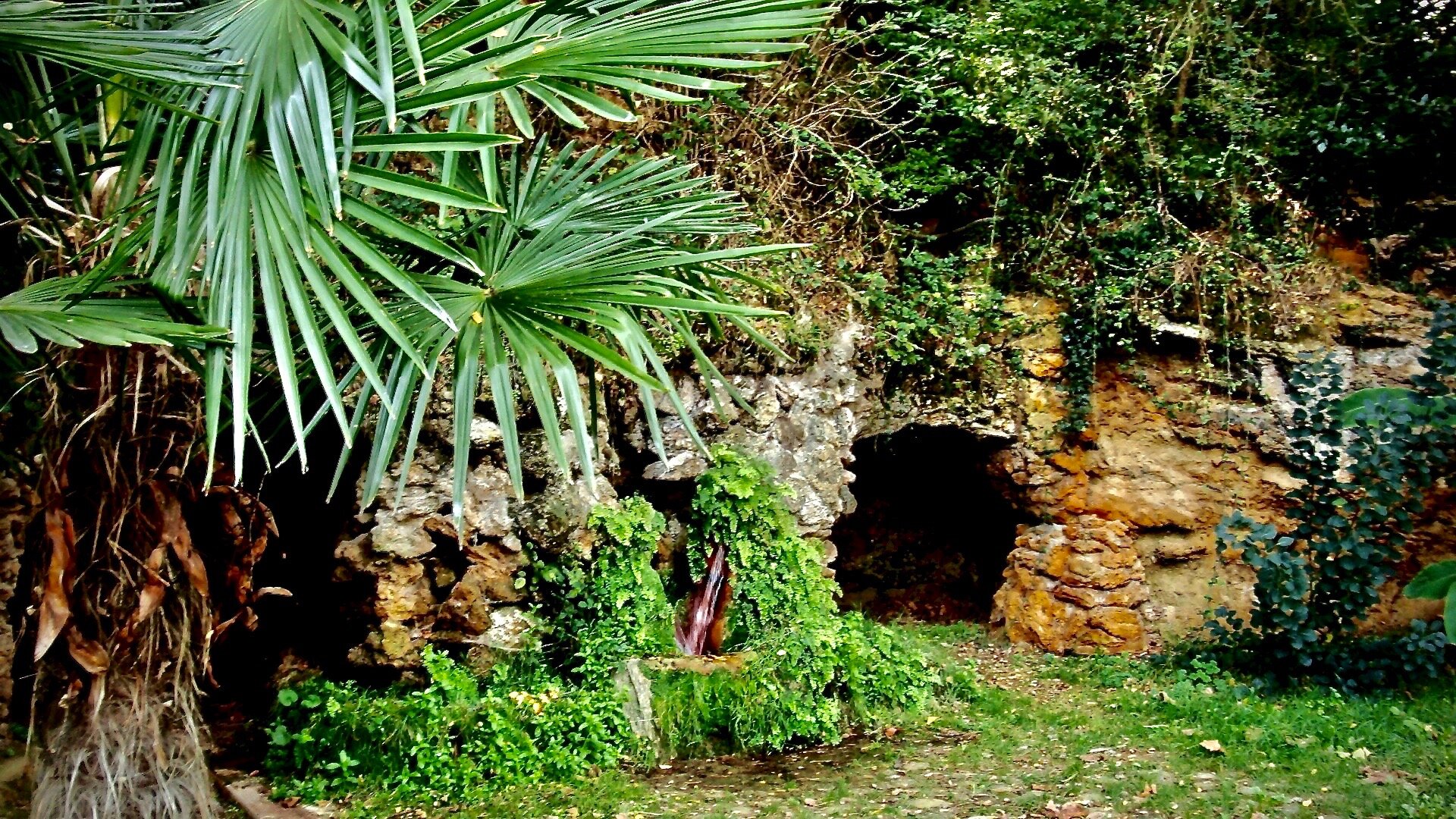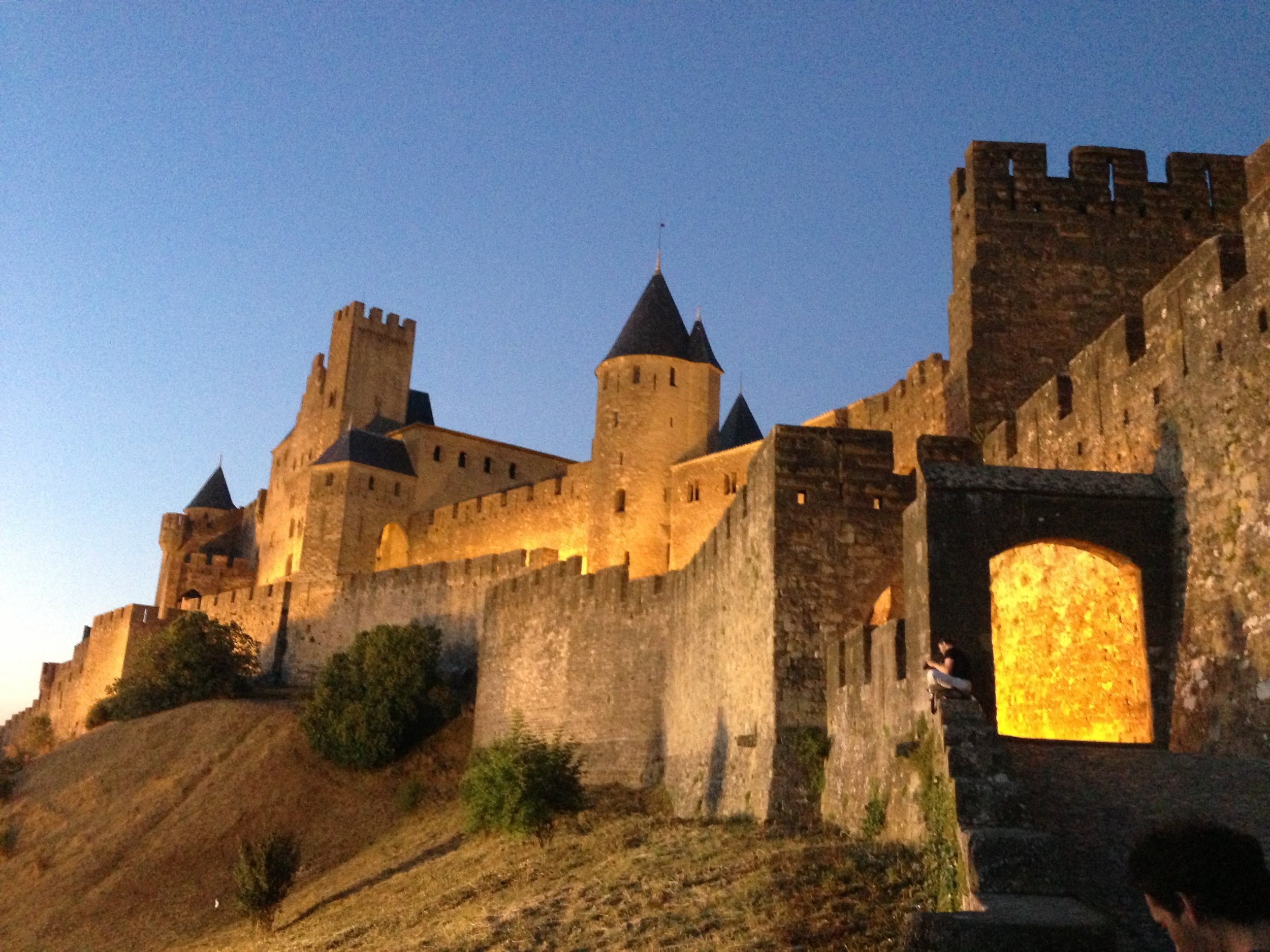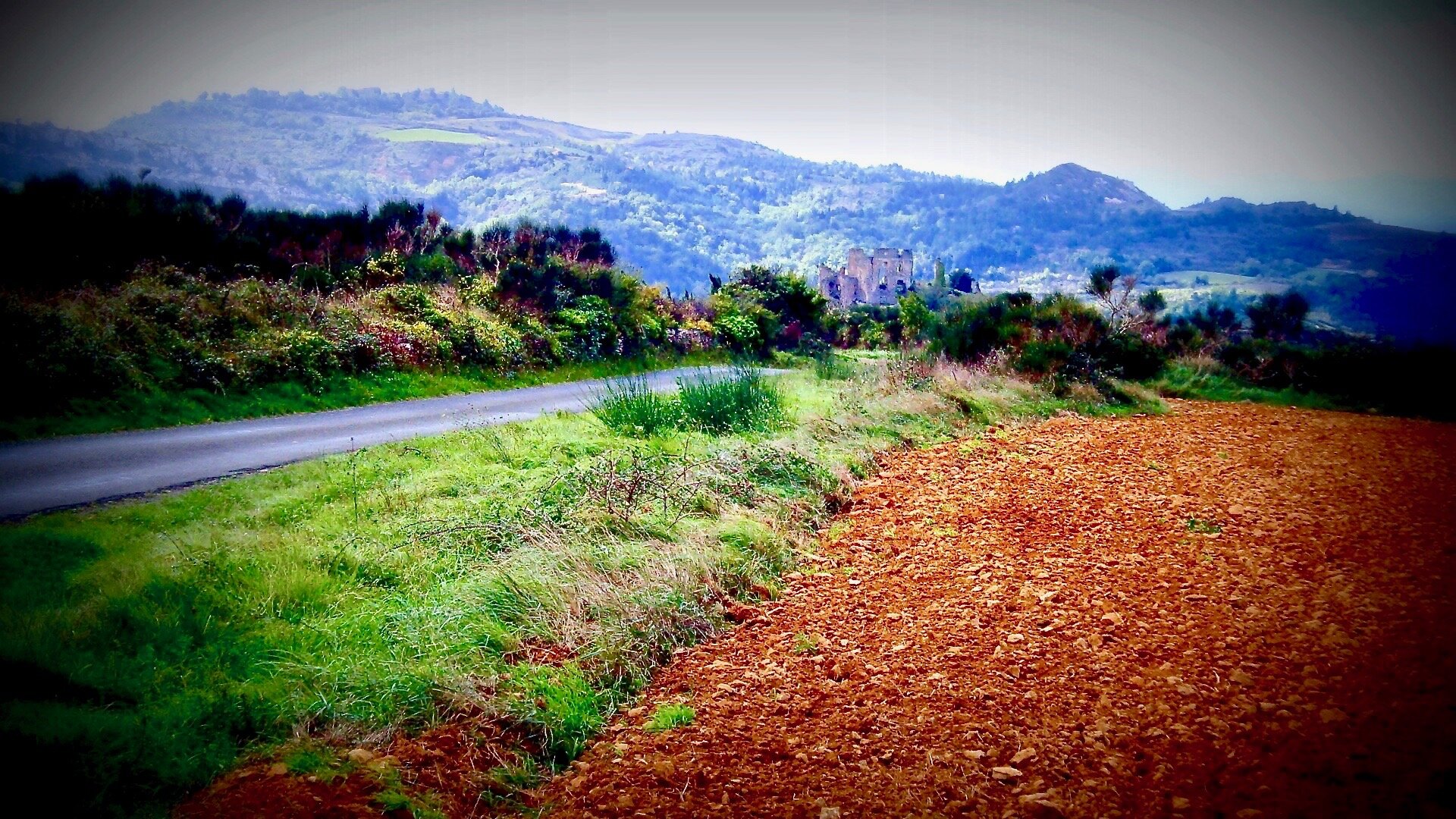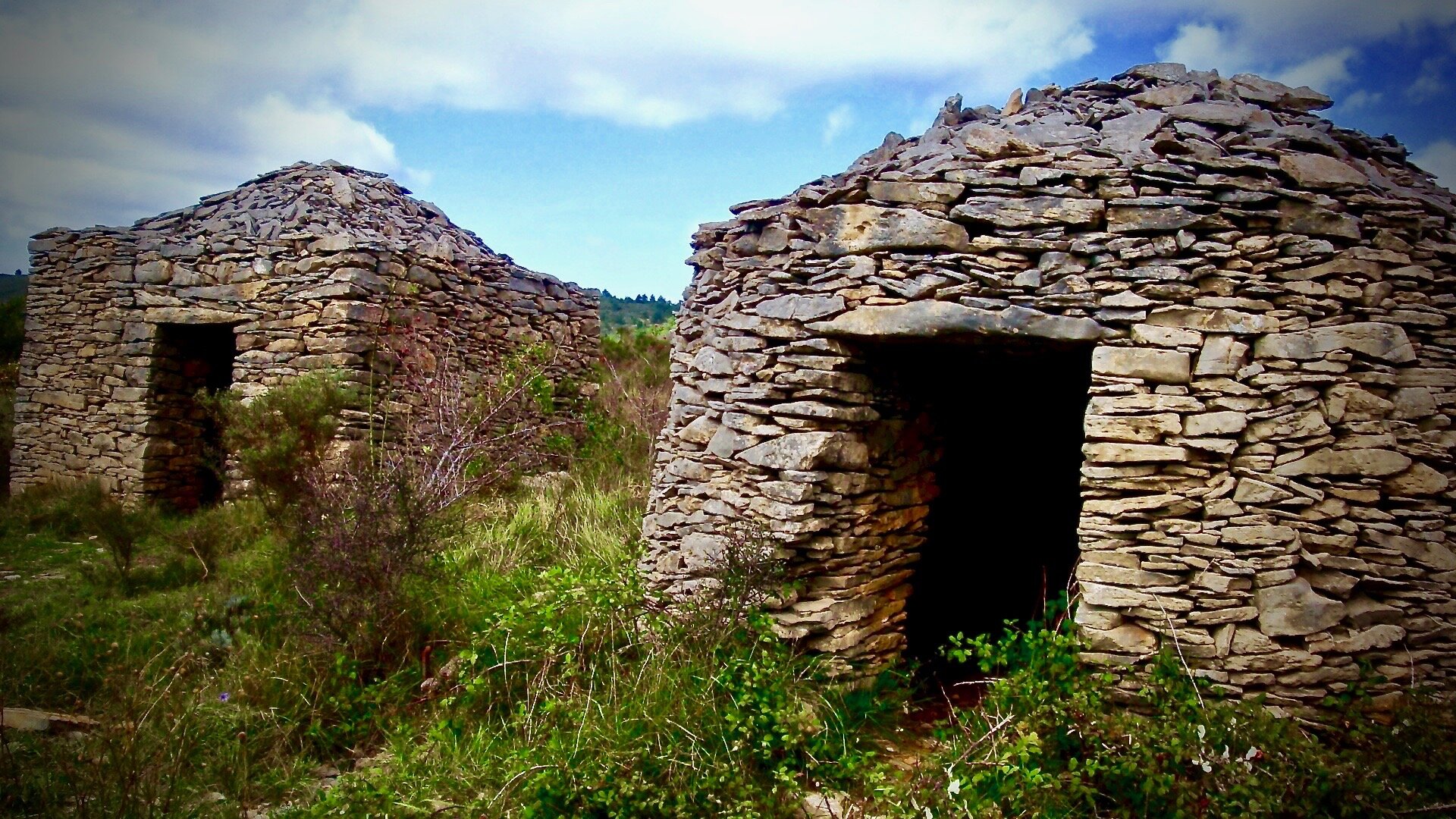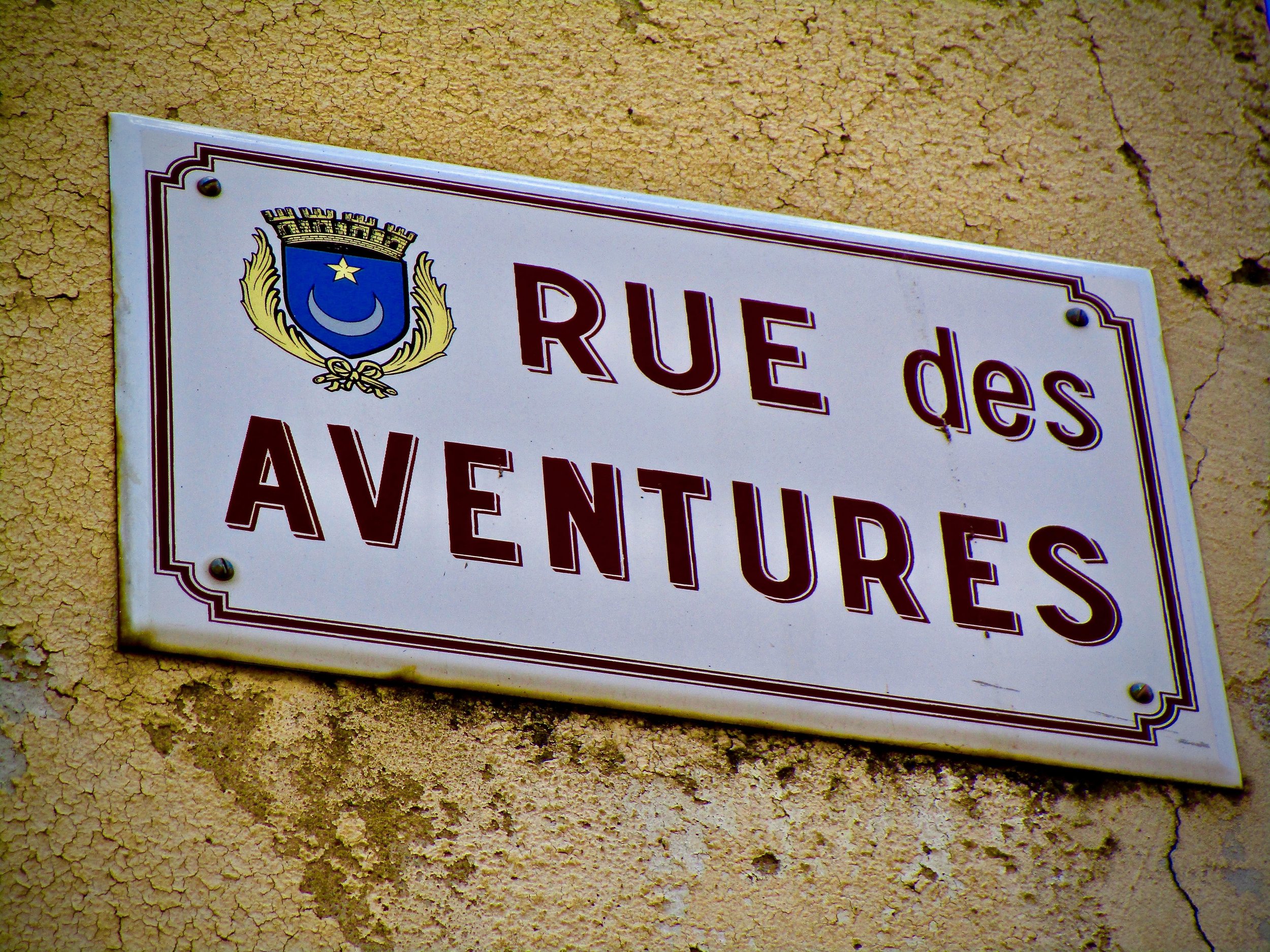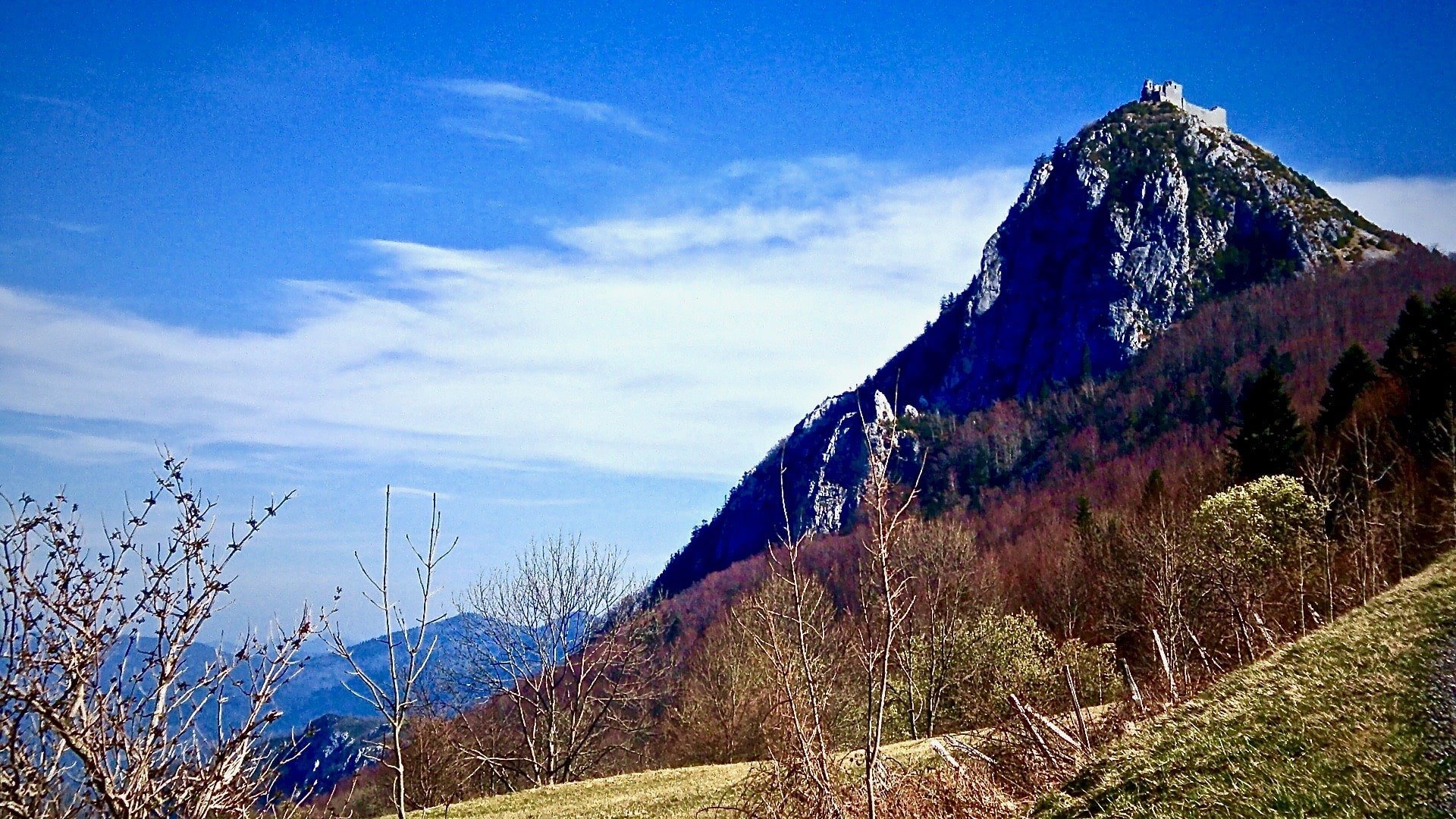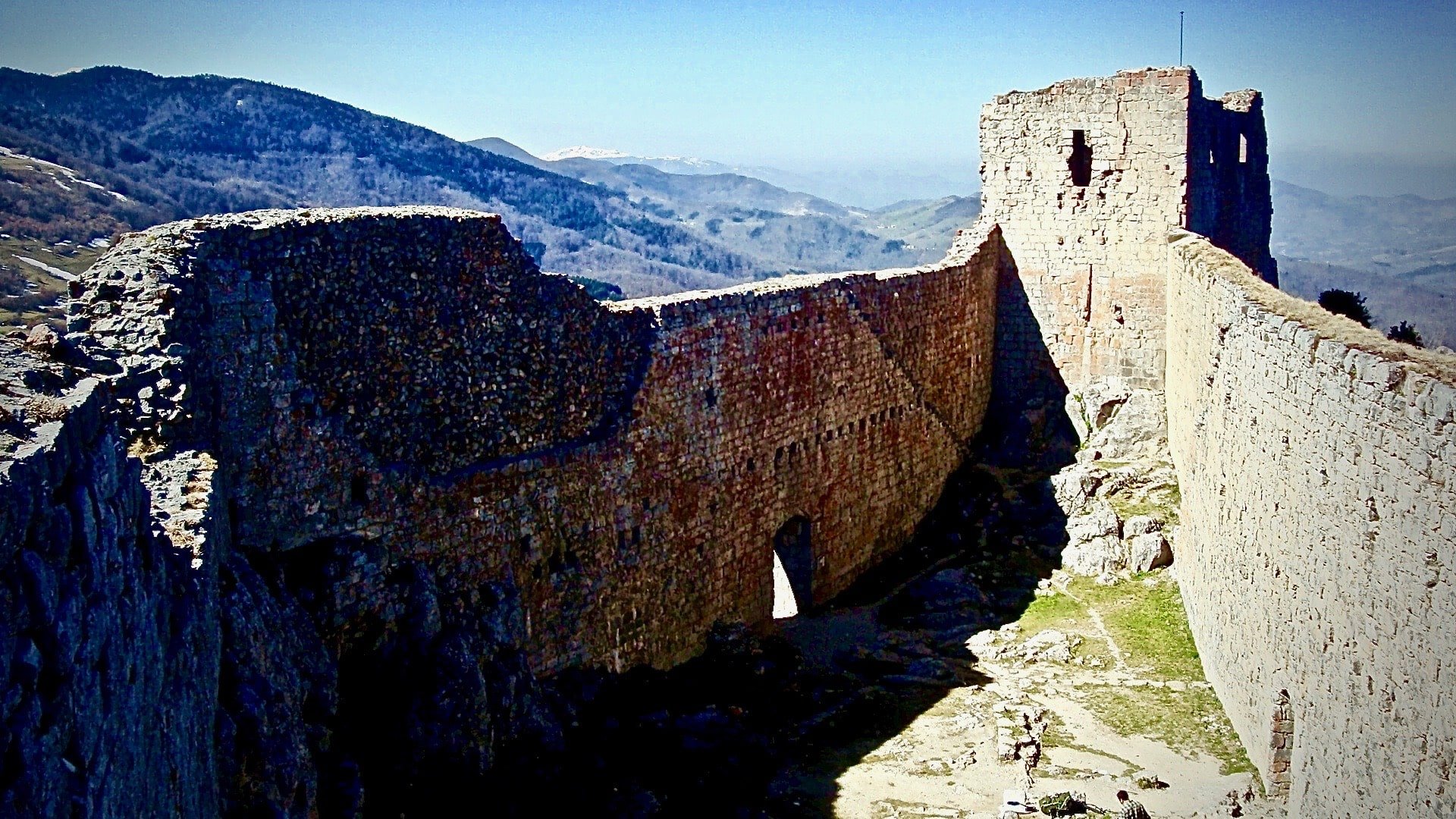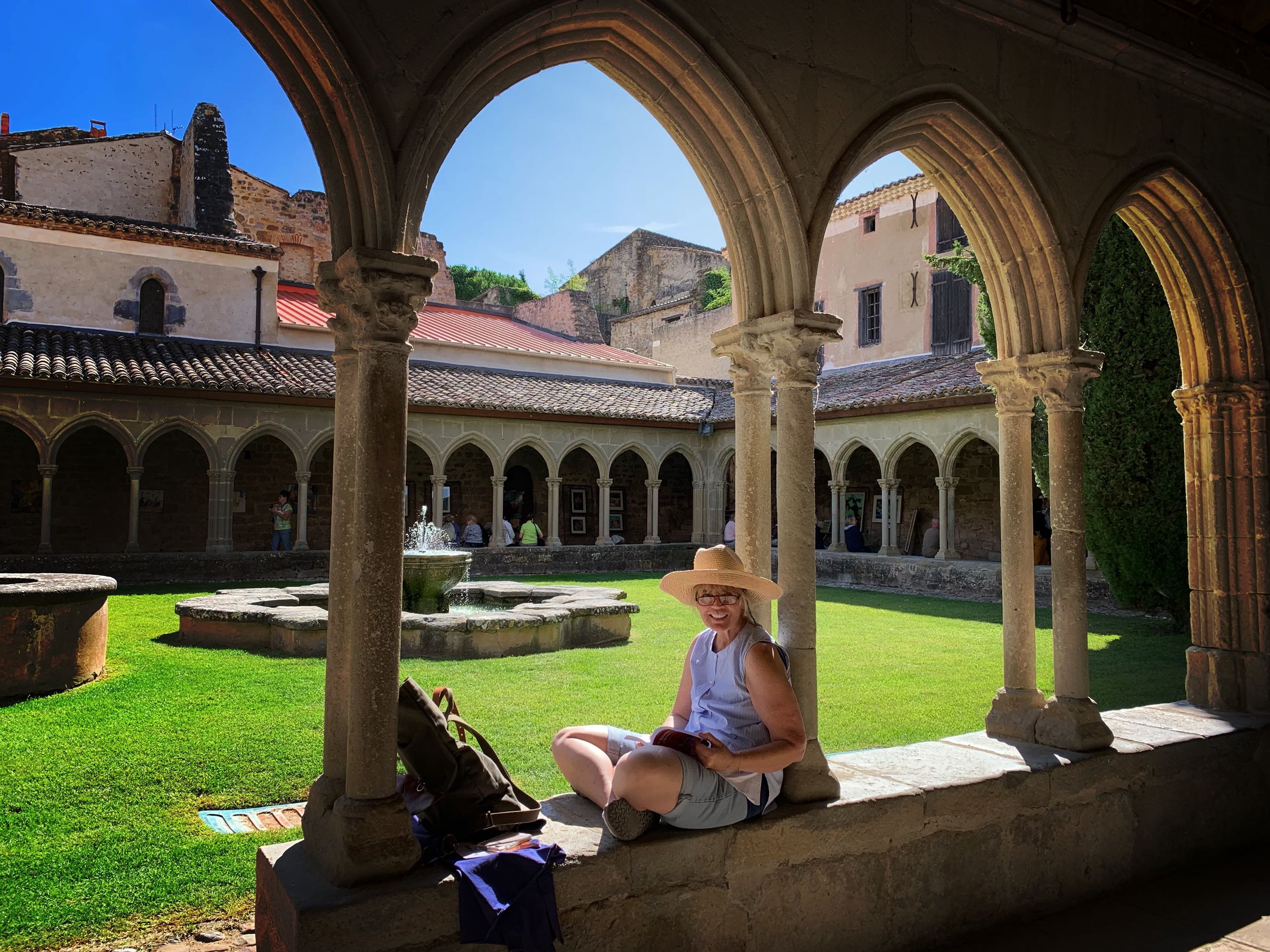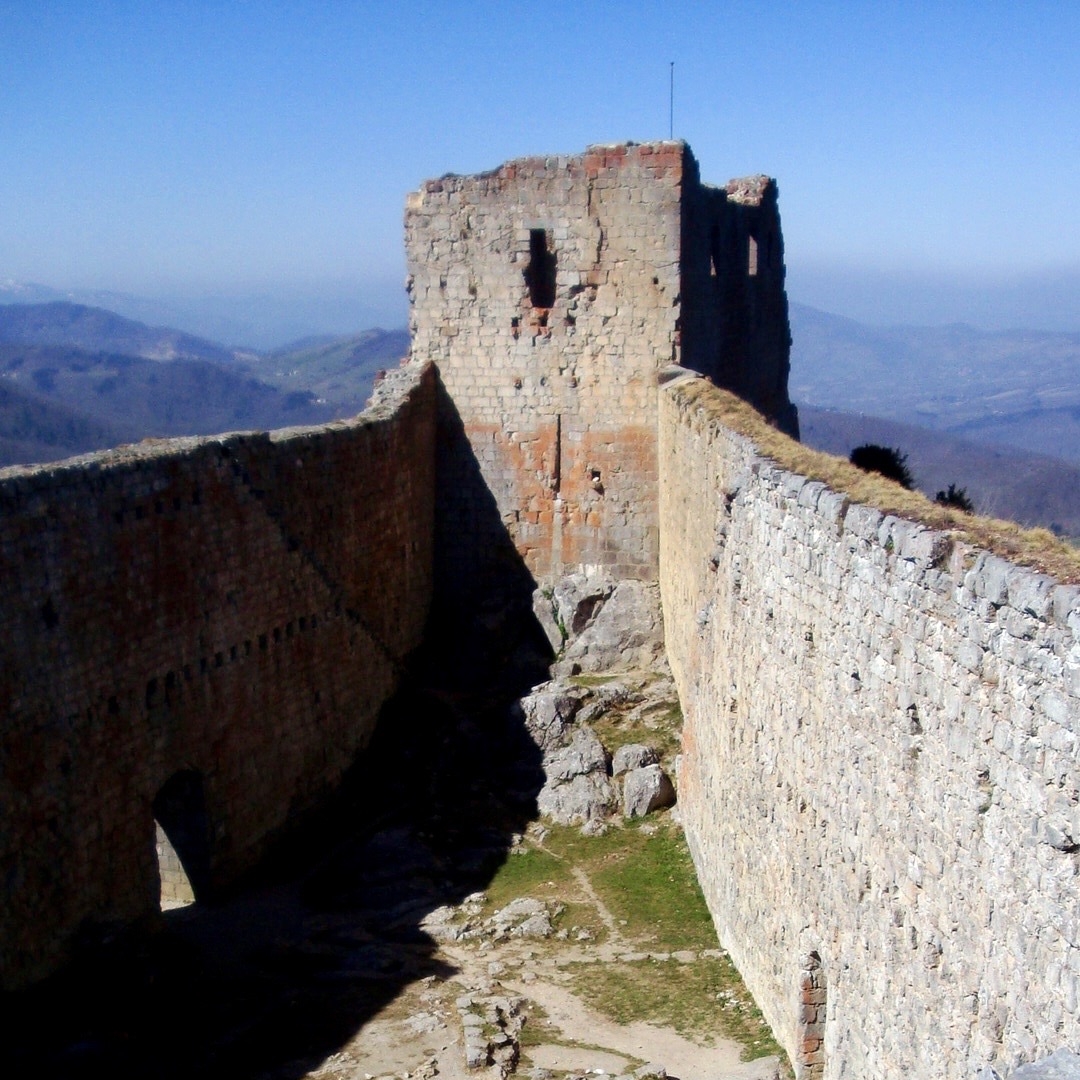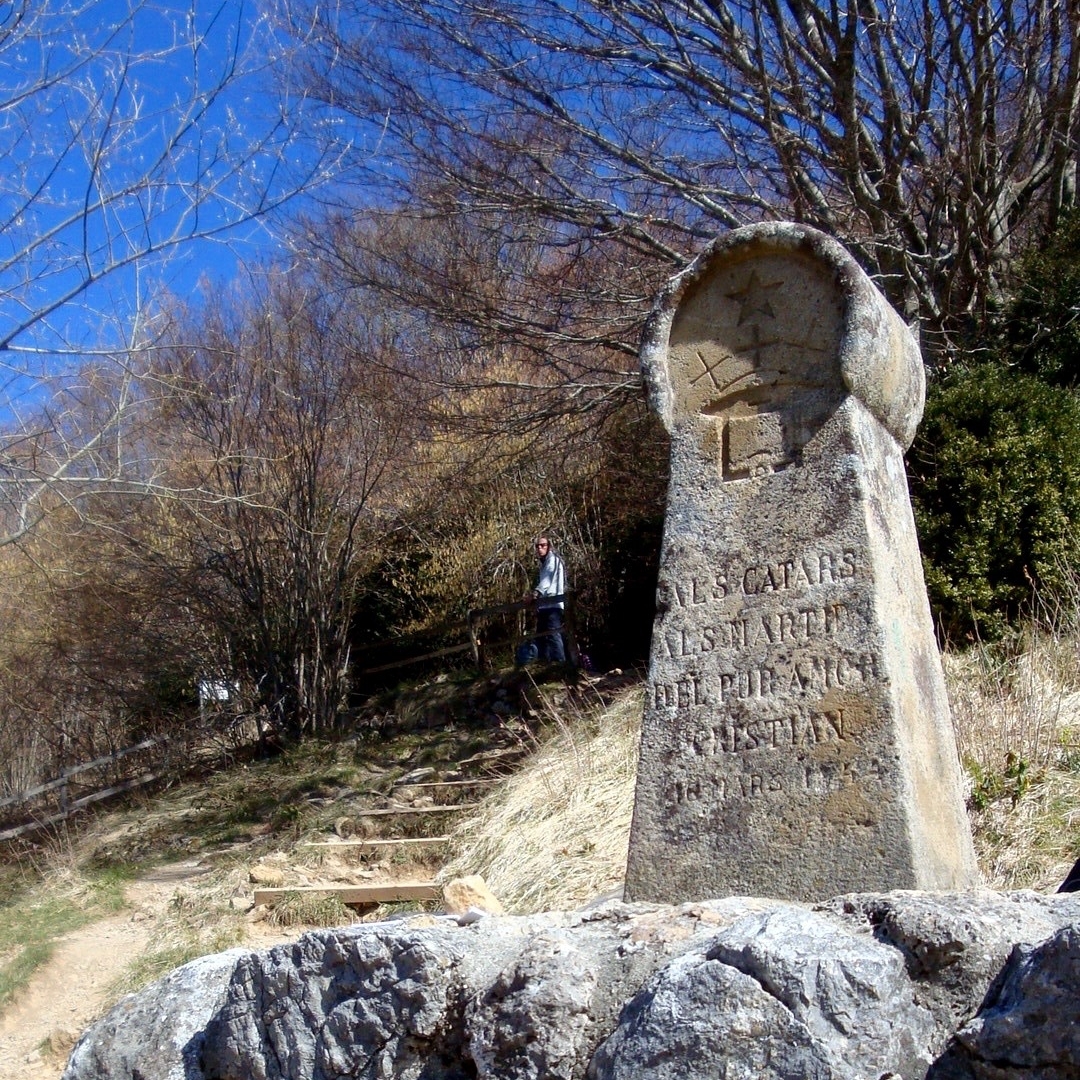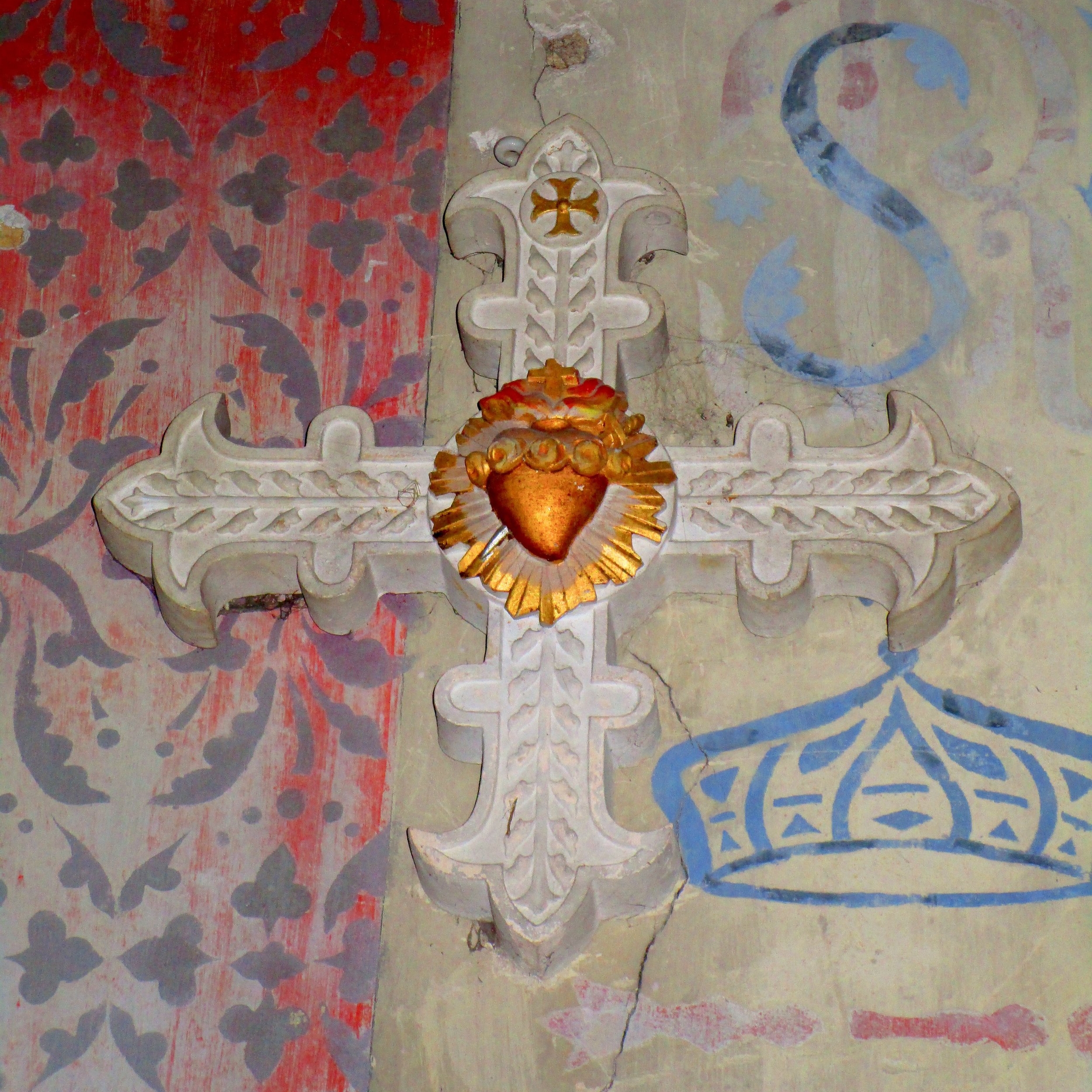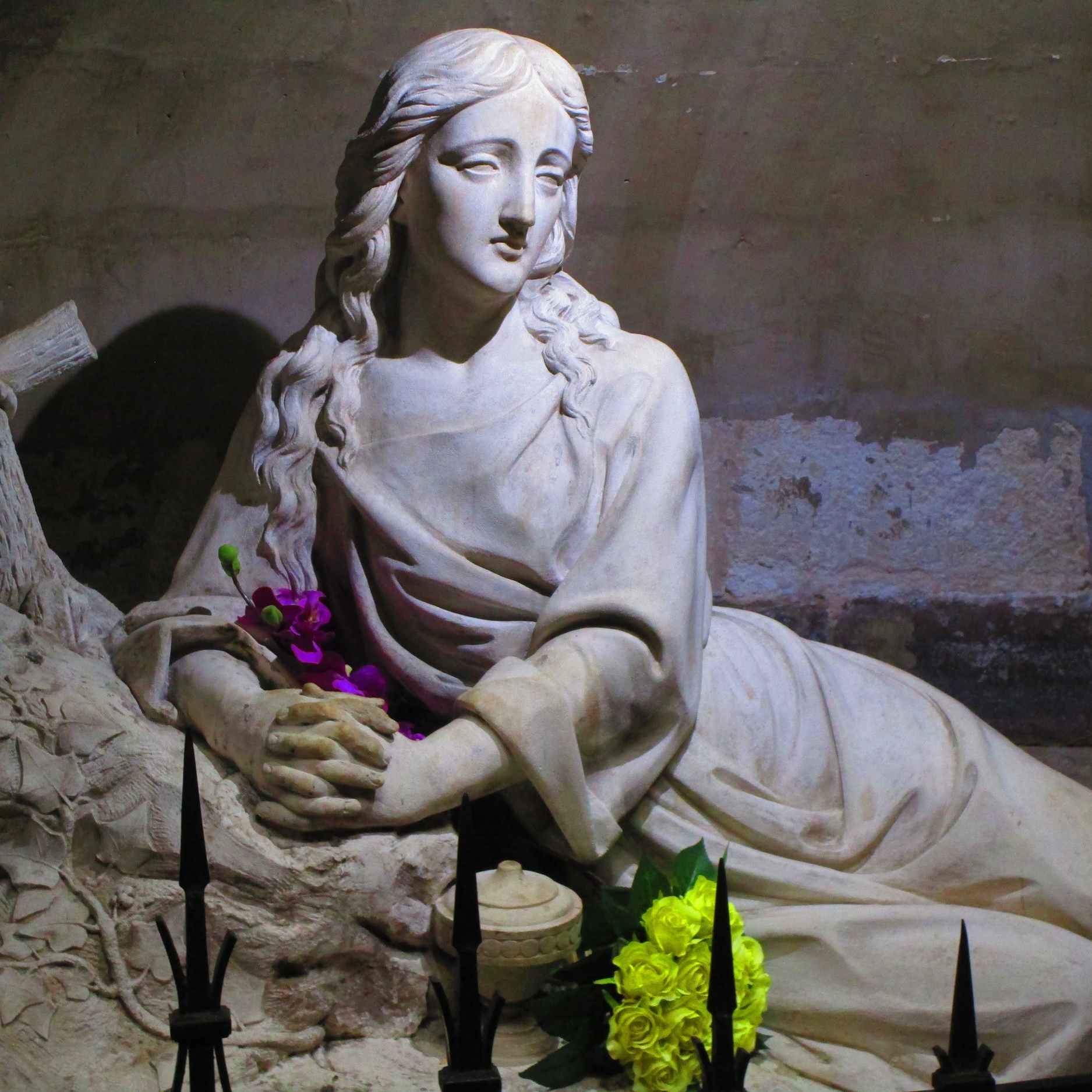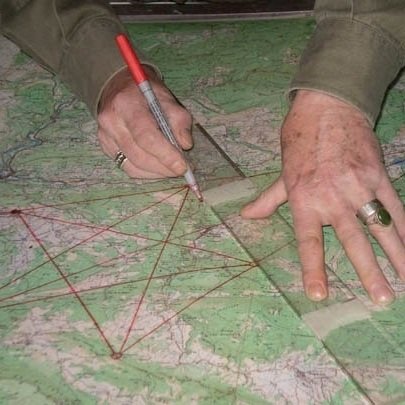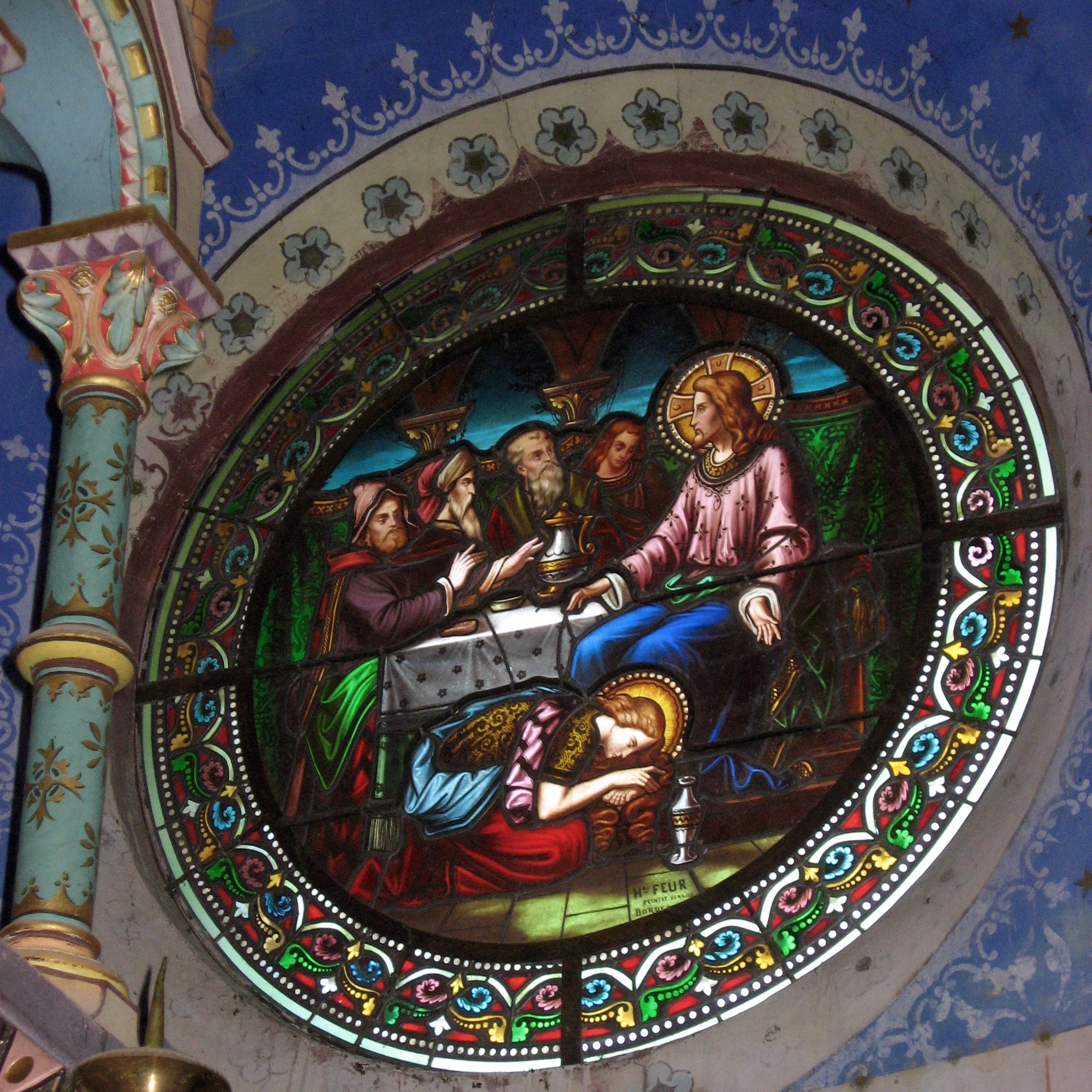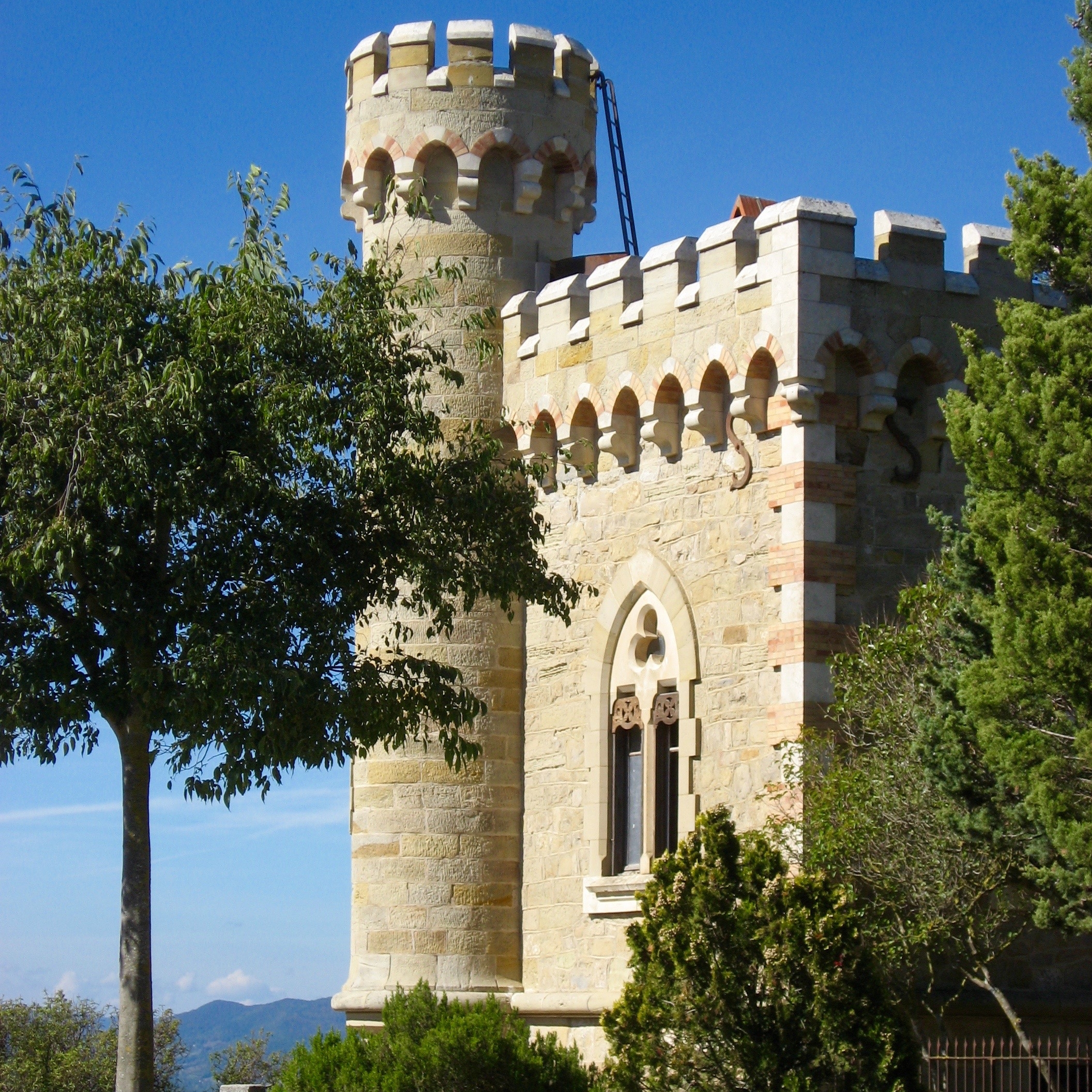Albigensian Crusade
In 1244 the Albigensian Crusade came to an end with the fall of Montségur in France. It was a true Crusade – though it was fought against fellow Christians, the Church would not accept them as true followers of Christ. The crusade is named for Albi – a principal town in the area where it was fought – but the ‘heretical unbelievers’ are known and remembered as the Cathars – the Pure Ones. Their Faith … a ‘new form of Christianity’ was growing in popularity and spreading ever-faster across Southern Europe. For the Church it was a threat. Why? The Cathars believed that they needed no priests to intercede with God on their behalf. For a Cathar, Christ was directly accessible. They denied the power and purpose of the priesthood – and this the Church could not tolerate… Thus the Albigensian Crusade began.
It is important not to attempt to impose a ‘modern’ attitude upon the beliefs of our forebears. The Cathars were a very practical people. Most of their followers were not considered 'Cathar' … Pure. The religion was made up of two different types of followers: simple believers or 'croyants' (who were not technically 'cathar') and the priesthood, pure or perfected ones, called 'parfaits.' Undergoing a special ceremony involving the laying on of hands, these 'parfaits', known to the people as "good men and women," vowed to live a perfect life – which they would spend in service, preaching and healing.
Most believers accepted that they were not capable of living such a life – and did not fully enter the Cathar faith until they were upon their death-bed when they were no longer able to sin. Those who did take this vow were forbidden not only from taking any life, but from eating meat or animal products, from engaging in carnal reproductive activities, and from telling any falsehood, taking oaths, or denying their faith. So rigorous was the decision to take the vow that among the thousands tortured and killed by crusaders, only one known Cathar ever recanted and betrayed his faith.
This gives only a very sketchy hint of the causes for the bitter butchery of the Albigensian Crusade which the Church inflicted upon this Land of the Troubadours – why the dreaded ‘Inquisition’ was created to deal with them. Why was their faith so different? In very simplified terms, they believed that this world and all created matter was the work of a god of evil. The God of Good they held to be of Pure Spirit, incapable of creating physical matter. The Earth and all its inhabitants were viewed to have spirits created by God that were then trapped here in bodies, in a world of the devil's creation until such a time as they were transformed to pure spirit.
Like the Templars, they were accused of despising the Cross. This was true. For the Cathars, a Crucified Christ was an impossibility. Jesus was created by God and therefore was not a physical man to be crucified, but a being of spirit meant to lead the way. The Cathars accepted and worshipped Christ, the Son of Mary – but they rejected Christ Crucified along with symbols representing his life. Incense, oils, and even the holy communion were seen as creations of this world and therefore inherently evil distractions from the God of Good, who has no relation to the things of this world.
Learn more about the Albigensian Crusade against the Cathars in the South of France in this historical visionary fiction epic by Allysha Lavino.
A fundamental misconception remains about the 12th century attitude of the Church and of those whom they considered to be heretics worthy of Crusade and Inquisition. The Cathars were essentially pacifist. The Church – for its own believers – held out the tempting bait of a promising future to bring their faithful to the cause. Following swiftly on the heels of the Crusades in the Holy Land, citizens were eager for this opportunity for glory and righteousness without having to stray too far from home. The Church promised: “Give us forty days service – and your place in Paradise will be assured. All your sins will be forgiven – and not only those you have committed … but also any that you may now commit.”
The Albigensian Crusade was sanctioned under promises of Christ’s forgiveness which led to the atrocities committed. When the first battle occurred, the town being attacked was filled with ‘Christians’ as well as ‘heretics’. “How shall we know who to kill?” the Abbot in charge was asked. “Kill them all,” he replied, “God will recognize His own.” Men, women and children were ruthlessly butchered, and worse. But, of course, the sins of the ‘crusaders’ had already been forgiven.
—Allysha Lavino, author of The Heretic






